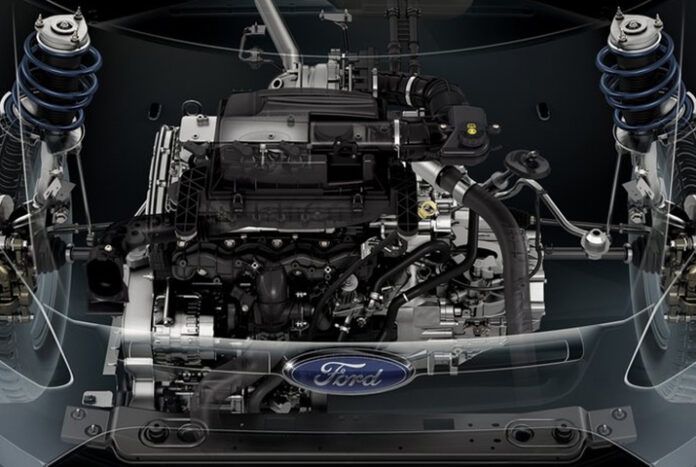If you own or plan to buy a Ford vehicle with an EcoBlue diesel engine, it’s crucial to be aware of potential problems these engines might encounter. Several Ford EcoBlue engines, including the 2.0 and 1.5-liter variants, have been linked to oil leaks and warning lights indicating engine performance issues. This guide highlights these concerns, their underlying causes, and effective ways to prevent or fix them.
Overview of Ford EcoBlue Diesel Engines
Ford’s EcoBlue diesel engines have become well-known for their efficiency and power, making them a favored choice among vehicle owners. These engines are found in models such as the Ford Transit, Transit Custom, and Ranger. Their design is optimized for fuel economy, benefiting both personal and commercial use.
Advanced Technology and Design
Ford developed EcoBlue engines to replace older diesel models with a more advanced and efficient system. These engines integrate innovative features such as a low-inertia turbocharger and high-pressure fuel injection, which improve combustion, boost performance, and lower emissions.
Both the 2.0 and 1.5 EcoBlue engines are designed to comply with stricter environmental regulations by using lightweight materials and improved cooling mechanisms. These enhancements contribute to a more sustainable engine without sacrificing power or durability.
Engine Variants
Ford offers EcoBlue engines in multiple sizes to accommodate different driving needs. The 2.0 EcoBlue engine, commonly found in larger vehicles like the Ford Transit and Ranger, delivers higher torque and power, making it suitable for heavy-duty applications.
On the other hand, the 1.5 EcoBlue engine prioritizes fuel efficiency while maintaining adequate power, making it ideal for smaller vehicles. This range ensures that both commercial users and everyday drivers have suitable options.
Performance Highlights
EcoBlue engines are engineered to offer an optimal balance between fuel economy and performance. Their turbocharged design ensures a responsive drive, while improved fuel efficiency makes them cost-effective over time.
Additionally, these engines are built for quieter operation, enhancing driving comfort. Whether used in a Transit Custom for work or a Ranger for leisure, an EcoBlue engine provides reliable and efficient performance.
Common Issues with Ford EcoBlue Engines
Despite their many advantages, EcoBlue engines are not immune to mechanical issues. Identifying these problems early can help mitigate expensive repairs. Below are some of the most commonly reported concerns.
Fuel Injector Problems
Malfunctioning fuel injectors can lead to rough idling, power loss, and inefficient fuel consumption. If injectors become clogged or fail, the engine may enter limp mode to protect itself from damage.
Regular maintenance and using high-quality fuel can prevent these issues. In some cases, injector replacement or professional cleaning may be required.
Exhaust Gas Recirculation (EGR) Issues
The EGR system plays a critical role in lowering emissions. However, soot buildup in the EGR valve over time can reduce efficiency and activate warning lights.
Regular EGR valve maintenance and cleaning can help prevent this issue. Using high-quality additives may also reduce soot accumulation and maintain proper system function.
Best Practices for Maintaining Your Ford EcoBlue Engine
Proper care is essential to maximize the lifespan and efficiency of your EcoBlue diesel engine. Here are some key maintenance tips to follow.
Routine Oil and Fluid Maintenance
Changing the engine oil every 5,000 to 10,000 miles ensures essential components remain well-lubricated and function properly. Regularly checking coolant, transmission fluid, and brake fluid is also critical.
Using Ford-recommended oil helps maintain engine efficiency and warranty coverage. Staying on top of these maintenance tasks can prevent long-term issues.
High-Mileage Engine Care
For vehicles with higher mileage, routine inspections are essential to identify wear and tear. Using high-mileage engine oil can help prevent leaks and maintain smooth operation.
Listening for unusual noises or vibrations can aid in early problem detection. Regular visits to a certified Ford technician ensure issues are addressed before they worsen.

